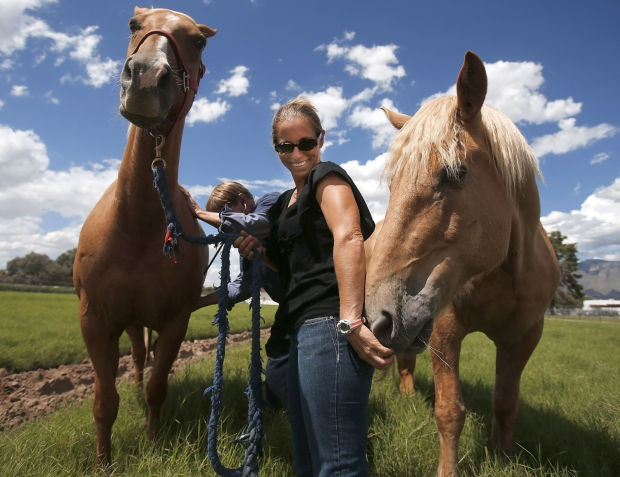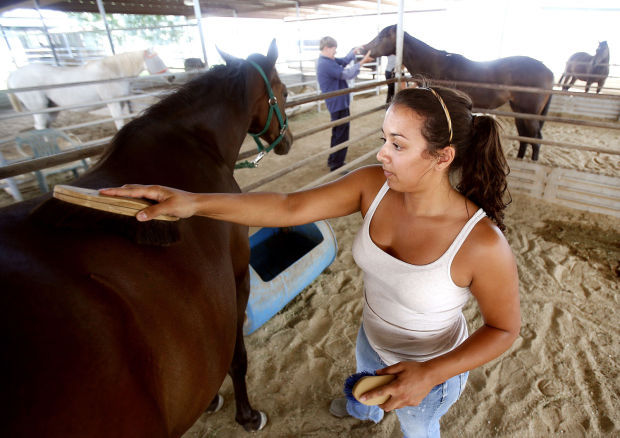The University of Arizona will use private philanthropy to establish a veterinary medical school, after being rebuffed twice by the state Legislature.
The UA will use a gift of $9 million from the Kemper and Ethel Marley Foundation to create the program and intends to enroll its first class in 2015.
The program will allow students from Arizona and elsewhere to pursue veterinary medical degrees in a shorter time at a lower cost, said Shane Burgess, dean of the College of Agriculture and Life Sciences.
The university will use $3 million of the gift to build, buy or adapt facilities across the state where vets can be trained, Burgess said.
None of that needs to be done in the first year of the program, said Burgess.
“We’ll be building facilities as they are needed. In the first year, everything can be done in our facilities as they exist today.”
First-year students will be taught by current faculty in the college’s veterinary science programs.
The new Kemper and Ethel Marley Foundation Veterinary Medical and Surgical Program will be a part of the College of Animal Science and Comparative Biomedicine.
Additional faculty will be hired in subsequent years as a revenue stream is generated by tuition payments, said Burgess. Half of the expected class of 100 will come from outside the state, including foreign students.
In Douglas, students will train at existing clinics and receive “border disease training” at the port of entry where 300,000 cattle cross each year.
In Yuma, the UA will team up with Arizona Western College. In Pinal County, the UA will build a dairy facility. A site in the Verde Valley will be the base for ranching and rangeland training.
In addition to rotating through those centers, students will serve residencies at established clinics across the state, Burgess said.
The “distributive” model of veterinary education allows the university to launch its veterinary medical degree without building its own hospitals and clinics.
The Arizona Board of Regents approved the concept and recommended funding, but the Legislature did not provide it.
In April, UA President Ann Weaver Hart wrote the Board of Regents that “we are very disappointed that the state chose not to support our innovative and revolutionary proposal,” but that she intended to move ahead with “a proposal that is funded with alternative sources of revenue and philanthropy.”
Regents President Mark Killian said he heard from some “dog-and-cat vets” that the school was not needed and from others who did not think the distributive model would work.
He said he remains supportive of the program and hopes it will address a shortage of large-animal veterinarians in the state.
Burgess said the program “is designed to accomplish that, but not to over-accomplish.”
He said the model is flexible enough to keep track of changing needs.
“We will be equally partnering with the biotech and biomedical industry and all those industries that need vets,” he said.
Burgess said $6 million of the Marley grant will be used to create an endowment for scholarships.
He said the new program will trim the $250,000 cost of a public veterinary medicine degree in half for Arizona students.
This is the second major gift to the UA College of Agriculture and Life Sciences from the Marley Family.
In 1993, it gave $6 million to finish a laboratory building on campus.
That donation, and the naming of the building for the Marley family, were opposed by some because of Kemper Marley’s connection to the car-bomb murder of Arizona Republic reporter Don Bolles in 1976.
John Harvey Adamson, who was convicted of Bolles’ murder, testified that he was hired to make the hit on Bolles by two associates of Marley’s because of articles Bolles had written about him.
Marley, who died in 1990, denied any involvement and was never charged with any crime.
The Marley Foundation is one of Arizona’s largest charitable donors. Its most recent tax return, from 2012, showed more than $10 million in gifts to a wide range of organizations, including those in health care, education and the arts.







